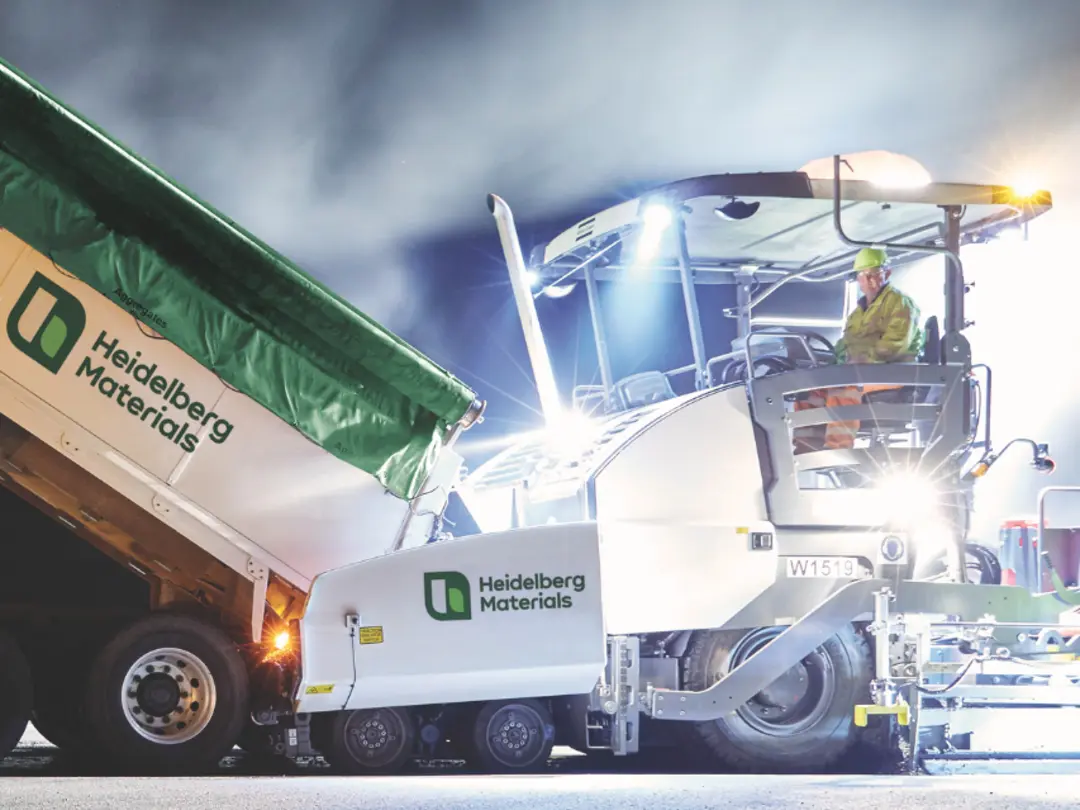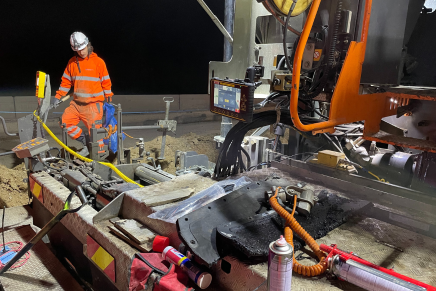At Heidelberg Materials, we have an expert contracting service to support a wide range of road surfacing and infrastructure projects across the UK.
Our range of services include:
• Early Contractor Involvement (ECI)
• Road Construction (Asphalt/CBGM)
• Material Design
• Mobile Production Operations – CBGM, CRBM, RCC
As leaders in the infrastructure business, we have extensive experience delivering high-quality results, in road construction and maintenance.
Our national reach also allows us to supply asphalt throughout the project duration, to ensure consistent, quality delivery throughout.
To learn more about our services, contact our contracting team today at contracting.uk@heidelbergmaterials.com. You can also view all of our contact options.
Creating sustainable, resilient highways
Our products and services are evolving to tackle challenges such as the impact of climate change and conserving natural resources by promoting the circular economy and decarbonising our business.
We process base materials including recycled construction materials, asphalt planings and primary aggregate and recycle 100 per cent of worn-out road surfaces, back into new materials. We use technologies such as foamed bitumen, emulsion and cementitious and biogenic binders to produce a range of cold mix materials, providing a lower carbon solution for road construction and maintenance projects.
Cold recycled bound materials (CRBM) - evoBuild Foamed Asphalt
CRBM, Heidelberg Materials' evoBuild Foamed Asphalt, is a like-for-like equivalent to replace traditional base and binder asphalt courses in road and footway construction.
Manufactured and installed in accordance with Specification for Highway Works (SHW) Clause 948 and BS9228, it uses foamed bitumen or bitumen emulsion to produce quick visco elastic (QVE) or cement for a quick hydraulic (QB) bound material.
Cement bound granular material (CBGM)
Serving as an alternative to traditional flexible paving materials such as an AC 40/60 base course, CBGM is an efficient and cost-effective option for constructing durable, long-lasting roads and footways quickly.
It can be used for road foundations as a more robust substitute for traditional unbound Type 1 subbase or in flexible composite roads, replacing the asphalt base layer.
Sustainable paving solutions
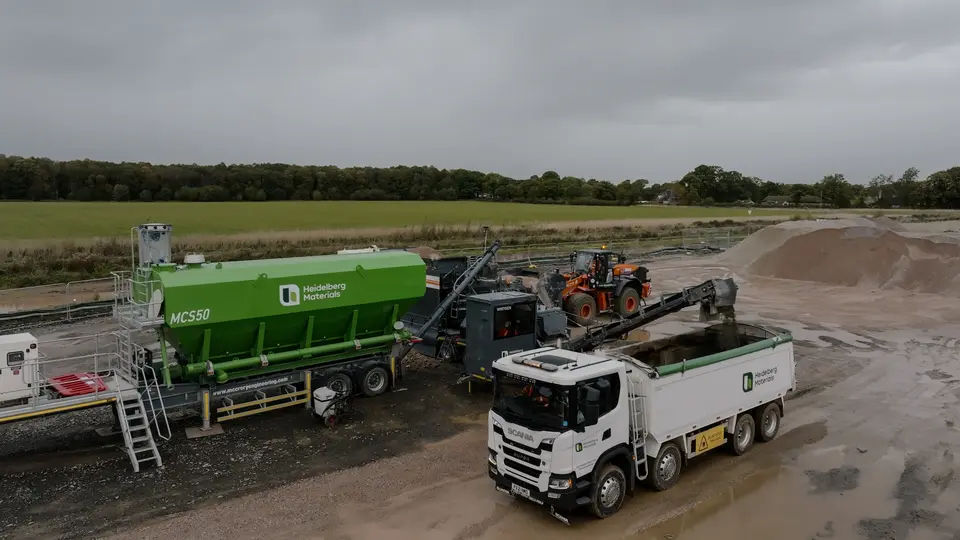
A12 Margaretting Concrete Road Scheme

Roller compacted concrete (RCC)
RCC offers a fast, robust approach for constructing heavy-duty road surfaces. It takes its name from the construction methods used and is placed using conventional asphalt paving equipment and compacted using vibratory rollers.
It has the same constituents as conventional concrete – cement, water and aggregates – but requires no formwork or steel reinforcement.
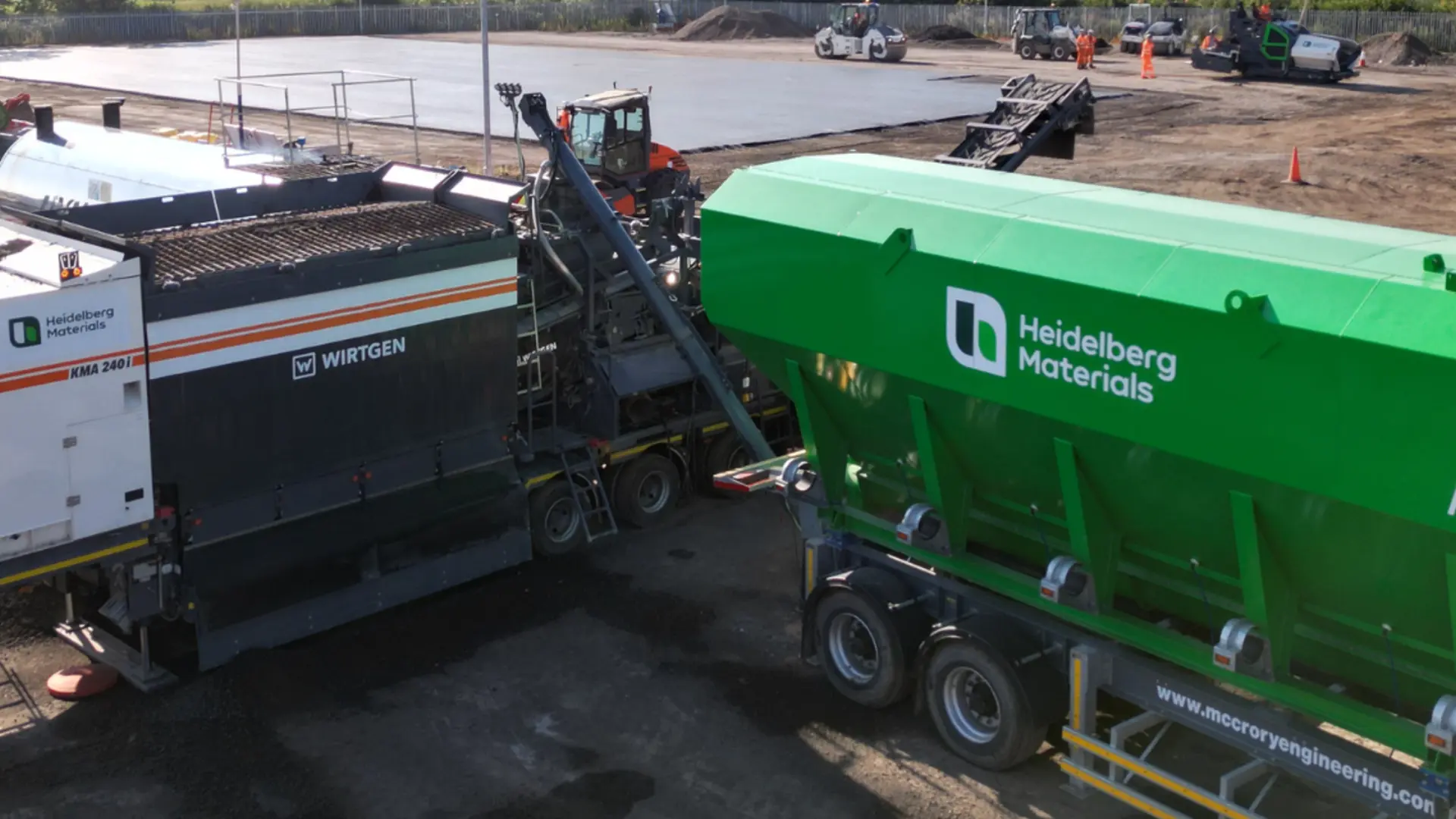
Benefits of working with the Contracting team
- Easy to do business with
- Knowledgeable, creative and agile
- Responsible, reliable and safe
- Dedicated asphalt supply
- Exceptional health and safety record
Collaborative working
Heidelberg Materials Contracting was the first national surfacing contractor to achieve the BS 11000 standard for Collaborative Business Relationships.
Sustainability
Our 2030 Commitments will build on the success of our 2020 objectives, which were set in 2010. Read more
Health and safety
The welfare of our employees is our number one priority.
Strategic road network, smart motorways and major projects:
- Maintenance of National Highways pavement assets
- Maintenance of Welsh Government pavement assets
- Road improvement works such as HE smart motorway projects
- Partnering on DBFO contracts
Local authority road network:
- Term maintenance contracts
- Framework contracts
- Individual and multi-site contracts
Other infrastructure projects
- Hinkley Point C Nuclear Power Station
- HS2 enabling work contracts
- s278 and s38 developments as surfacing subcontractor
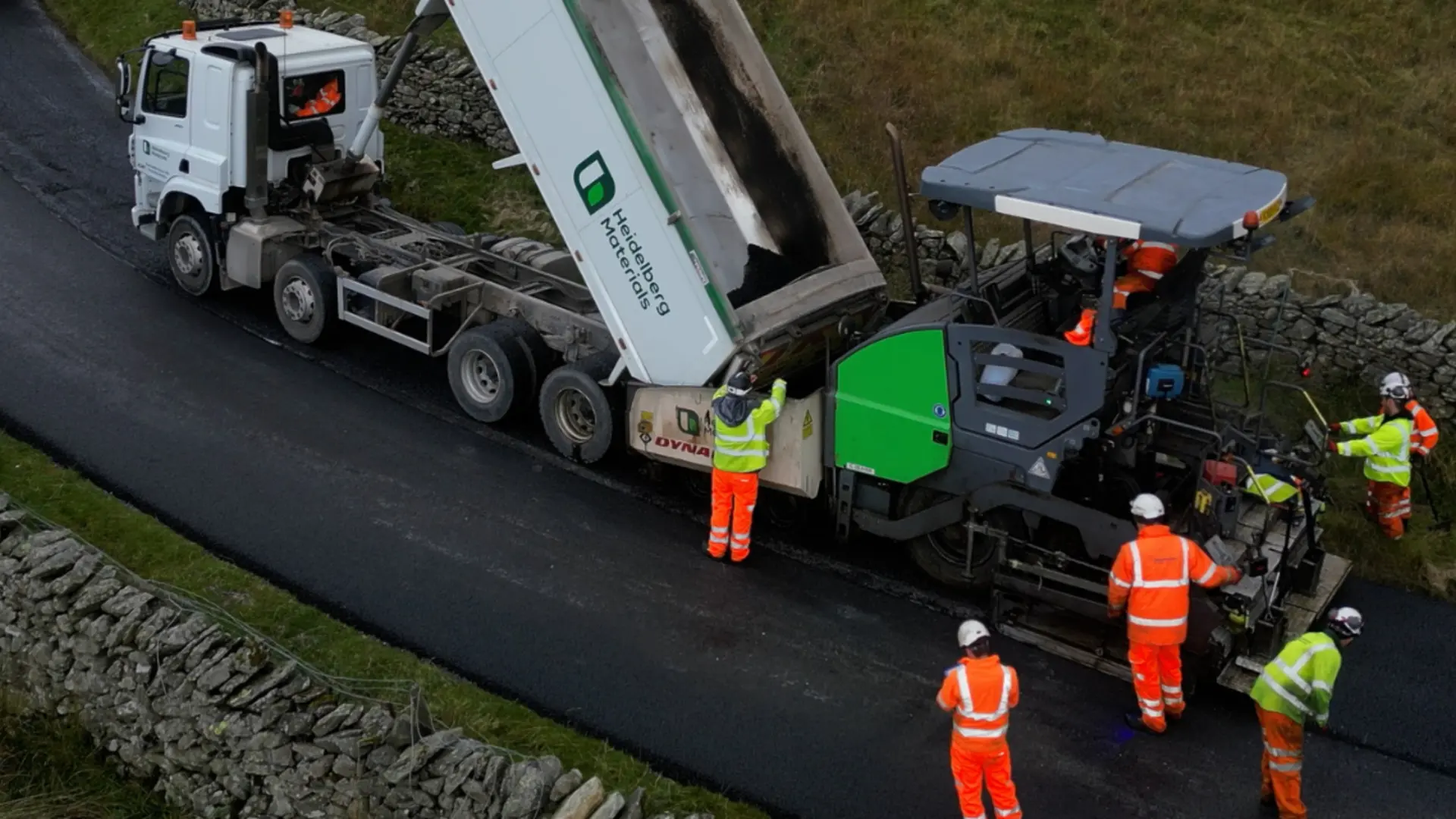
Our people
Our people and services we can offer is what sets Heidelberg Materials Contracting apart from our competitors.
Our people and services we can offer is what sets Contracting apart from our competitors. We are a united company focused on exceeding customer expectations through an engaged team that is responsible, reliable and safe. We constantly challenge ourselves and are committed to excellence and hard work and recognise each employee’s contribution.
All of our employees are offered a range of training opportunities to allow them to continually develop. By committing to learning and training opportunities, we want our colleagues to feel confident and motivated to contribute to our success.
Heidelberg Materials UK offers a structured, two-year graduate trainee manager programme, which gives our future leaders exposure to all areas of our business. We have also designed our Leadership, Education and Development (LEAD) higher management apprenticeship programme for enthusiastic school leavers. It offers the best of both worlds – earning while you learn and develop supervisory skills in a hands-on environment.
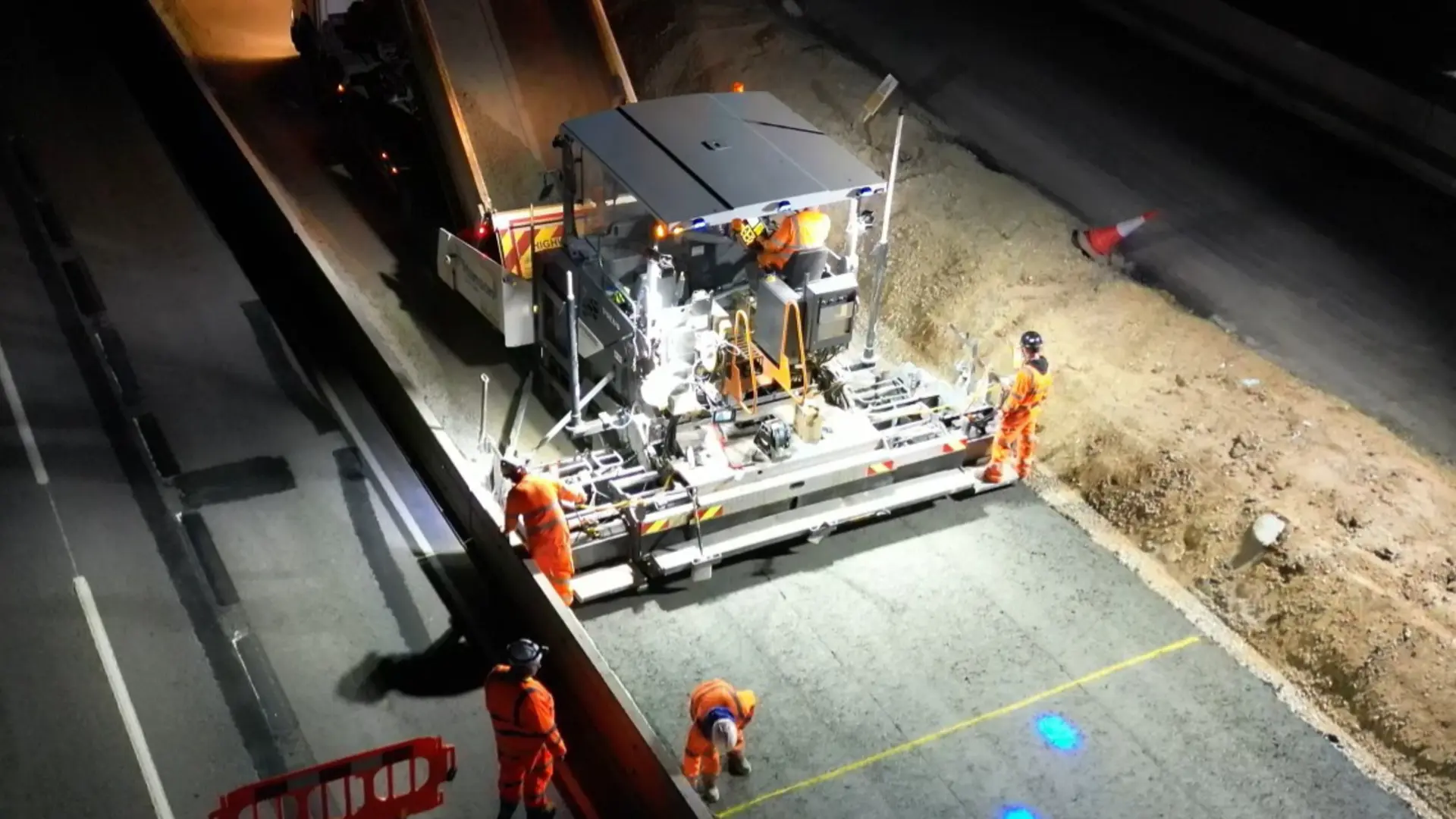
Credentials and benefits of working with us
- National Highway Sector Scheme 16
- ISO 9001:2015 Quality Management System
- ISO 14001:2015 Environmental Management System
- OHSAS 45001:2018 Occupational Health and Safety
- ISO 44001 Collaborative Working
- BES 6001 Responsible sourcing of materials
- ISO 50001 Energy Management

Products: A new era® in asphalt
era® is our energy-reducing asphalt, which helps meet the sustainability targets of today’s road building projects.
Its innovative production process allows material to be produced at a lower temperature, reducing the carbon emissions associated with asphalt production by up to 50 per cent while enhancing durability and improving health and safety for contractors.
The reduced temperature of era® also allows faster completion of resurfacing works, minimising time on site and disruption for motorists.
Both products in the range - era® 100 and era® 140 - can include recycled material in the mix and the asphalt itself is 100 per cent recyclable at end of life.



